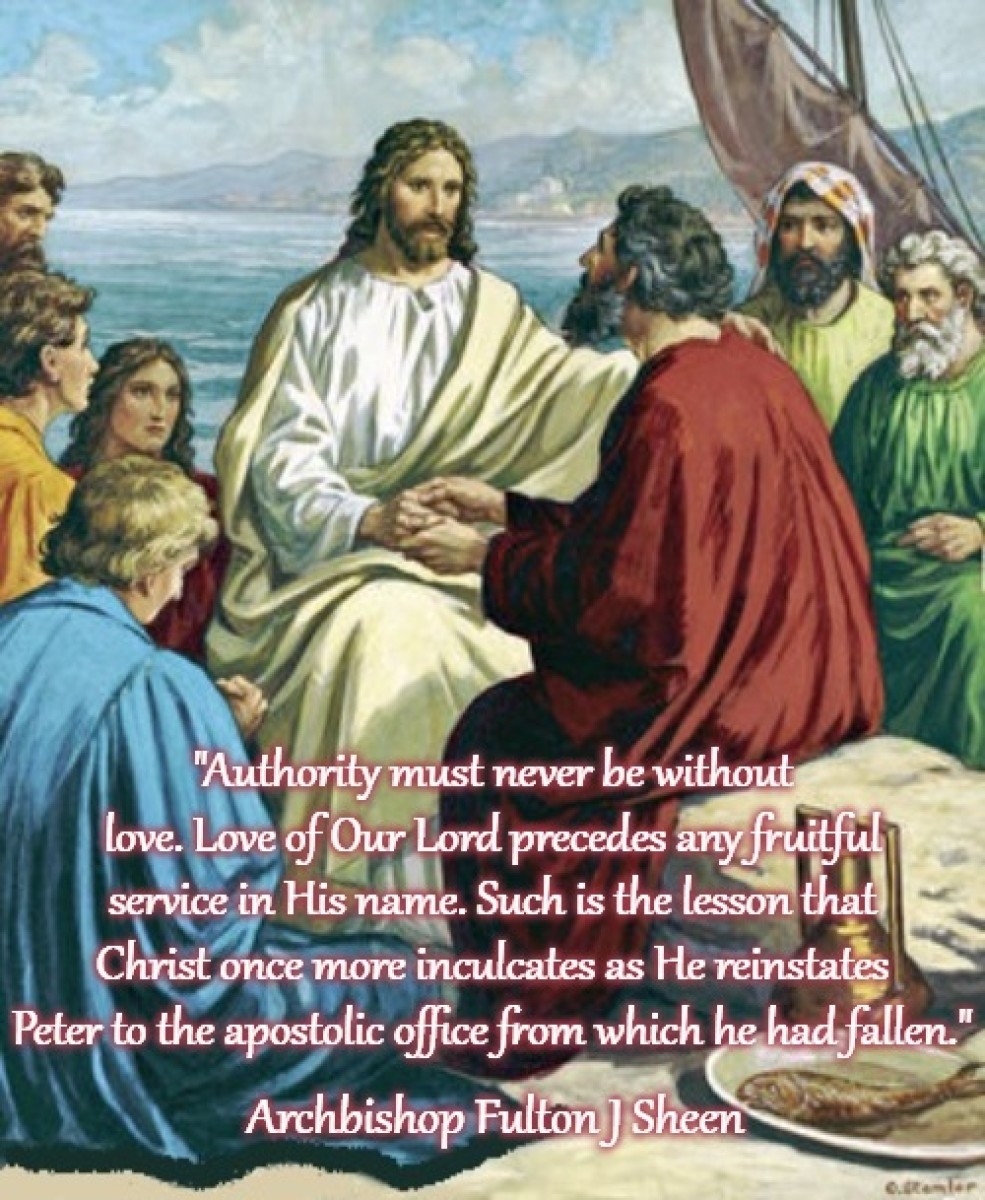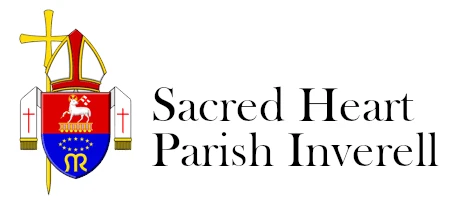Third Sunday of Easter (Year C) - 4 May 2025
4th May 2025

“To love God as He ought to be loved, we must be detached from all temporal love. We must love nothing but Him, or if we love anything else, we must love it only for His sake.” - St Peter Claver
A reflection on today's Gospel reading by the Venerable Archbishop Fulton J Sheen:
"Authority must never be without love. Love of Our Lord precedes any fruitful service in His name. Such is the lesson that Christ once more inculcates as He reinstates Peter to the apostolic office from which he had fallen. Once again He addresses him as Simon, reminding him of the critical moments when Christ had first given him a new name and new authority (Mt 16:14) and had warned him of his impending fall, while promising restoration through His love (Lk 22:31). Though authority in the Church is based on love, love in its turn is inseparable from obedience. ‘If you have any love for Me, you must keep the commandments which I give you’ (John 14:15).
"The gospel account of Christ’s triple question to Peter introduces a curious detail. The Greek text uses two different words, both of which are translated into English as ‘love’. The first of these words is agapao, a word that implies a knowledge of the preciousness of the one who is loved. It is the word John uses to express God’s love for fallen man, whom He so loved ‘that He gave His only-begotten Son, that those who believe in Him may not perish’. The other Greek word is phileo, indicating the response of the human spirit to anything that appears as pleasurable, a love implying some kind of friendship.
"The first two times that Christ asks Peter to proclaim his love for Him, He uses the word agapao, whereas the third and final question contains the word phileo. But each time, Peter in his answer uses the same word, the word phileo. In the New Testament, it is the less frequently used word to describe love. Agapao, implying an awakened and higher sense of value, occurs about 320 times; phileo, indicating a love of friendship, only 45 times. To recreate the scene in the terms and form of a playwright might produce a result something like this:
Christ: Simon, son of John, do you love Me more than do these others, with a divine, sacrificial, victimlike and self-surrendering love?
Peter: You know, Lord, that I love You with a deep, human, instinctive, personal affection, as my closest friend.
Christ: Simon, son of John, do you love Me more than do these others, with a divine, sacrificial, victimlike and self-surrendering love?
Peter: I have already told You, Master. You know that I love You with a deep, human, instinctive, personal affection, as my closest friend.
Christ: Simon, son of John, do you love Me with a deep, human, instinctive, personal affection, as a very close friend?
Peter: How often, Lord, must I repeat my answer? For the third time, I love You with the deep, human, instinctive, personal affection one has for one’s closest friend.
"Peter’s answer shows that he was hurt. He was grievously hurt. Yet the reason is not quite as simple as might appear on the surface. It was not just the thrice-repeated question that upset him. It was rather that the change from agapao to phileo indicated a scaling down of Our Lord’s demands. He was no longer calling for the victim kind of love for which He had first asked. It is as if Our Lord were putting His hands under that poor, weak, fragile love of Peter, just as He in fact starts with our poor, weak, human love as a beginning of a rich apostolate. The Lord asked for a love of devotion, and all He got was a love of emotion. But even that He does not reject. It is not enough, He says, but it is enough to start.
"During the public life, when Our Blessed Lord had told Peter that he was a rock upon which He would build His Church, He prophesied also that He Himself would be crucified and would rise again. Peter then tempted Him away from the Cross. In reparation for that temptation, which Our Blessed Lord called satanic, He now notified Peter that He was not only commissioning Him with full authority to rule over His lambs and sheep, but that He was arranging for him yet another parallel with Himself, that Peter too would die upon the cross. ‘You will have a cross like that to which they nailed Me,’ He told him in effect, ‘the cross you would have denied Me and thus precluded My glory. Now you must learn what it really means to love. My love is a vestibule to death. Because I loved you, they killed Me.; for your love of Me, they will kill you. I once said that the Good Shepherd gives His life for His sheep; now you are My shepherd in My place; you will receive the same reward for your labours as I have received – crossbeams, nails, and then … life eternal.’
"Impulsive and self-willed in the days of his youth, Peter would in his old age glorify the Master by a death on a cross."
(The Priest is Not His Own)
Easter Blessing Prayer for Families
Almighty God, who through your only-begotten Son Jesus Christ overcame death and opened to us the gate of everlasting life: Grant that we, who celebrate with joy the day of the Lord’s resurrection, may be raised from the death of sin by your life-giving Spirit; through Jesus Christ our Lord, who lives and reigns with you and the Holy Spirit, one God, now and forever. Amen. 🙏💖💐


